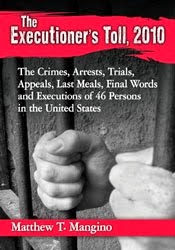A federal judge admonished the 12 jurors and
five alternates serving in the criminal fraud trial of Theranos’ founder
Elizabeth Holmes to avoid media regarding the case after an especially lengthy
three-day jury selection, reported Law.com.
Almost every potential juror that was questioned had heard
of Holmes’ defunct blood-testing company and many had read books, watched
documentaries or listened to podcasts detailing the alleged fraud at the center
of the government’s case against Holmes.
Although America’s modern fixation on high-profile crimes
and courtroom drama is at least decades old, criminal defense attorneys and
jury consultants say the influx of streamable true-crime content has affected
juror behavior.
Jina Choi, a Morrison & Foerster partner and former
director for the U.S. Securities and Exchange Commission’s San Francisco
regional office, said the podcast phenomenon is reminiscent of the
“CSI-effect,” where jurors would ask “where’s the DNA evidence,” as a result of
the hit crime forensics TV show. Choi, who also was a federal prosecutor in
Texas, said people are able to access a lot of information about cases and
defendants as a result of podcasts and documentaries. “I could see that having
an effect on jury trials,” she said.
U.S. District Judge Edward Davila of the Northern District
of California, who is presiding over the Holmes trial in San Jose, California,
spent several hours each day asking prospective jurors if it was possible to
“unread that book” or “unring that bell,” and if not, what would they do to try
to put aside the narratives that they had encountered?
One potential juror who said he had consumed a variety of
media, including a documentary, regarding Holmes and the company, told the
judge he would focus on “what’s here, what’s now today.”
“It’s going to be tough, difficult. But I feel like I’m up
for the task,” the juror said.
Several other people who had been summoned for jury duty
said they didn’t feel they could set aside the information they’ve been exposed
to about Holmes and Theranos.
Tara Trask, the founder and president of litigation
strategy, trial consulting and jury research firm Trask Consulting, said the
questions regarding documentaries, podcasts and books in the Holmes trial were
pretty standard. However, Trask said she has seen multiple effects from the
“huge increase” in true crime documentaries and podcasts.
“First, I think the increased amount of this type of content
has had a desensitizing effect for many people,” she said in an email. “What
used to be sensational is now run-of-the-mill. Additionally, much of the true
crime content is quite well-done from an entertainment perspective, meaning
that it is often compiled in a very dramatic way through excellent
storytelling. I think jurors expect a great deal of drama and intrigue.”
In real-life cases, Trask said jurors face a level of
uncertainty they often do not encounter when they are passively watching CSI or
true crime documentaries on Netflix.
Trask said her team also sees prospective jurors who seem to
quickly jump to the notion that there is more going on than meets the eye. “We
have observed that many jurors are more inclined toward conspiratorial thinking
and are more likely to embellish fact patterns than in the past,” she said.
The combination of visual storytelling over print and the
blurring of fact and opinion has created “a perfect storm,” she said. “Jurors’
expectations about what evidence they will be presented has made prosecutors
job’s tougher,” she said. “YouTube and social media have increased jurors’ propensity
to default to confirmation bias in the current moment, which can cause problems
for both sides in criminal cases.”
In some ways, jurors might recognize they are becoming the
next chapter of a true crime story. During the Holmes trial, Davila noted that
jurors likely walked past a line of journalists to get into court. Some of
those journalists are podcasting the trial as it unfolds, including the Wall
Street Journal’s John Carreyrou, who wrote a best-selling book on Theranos that
several of the jurors said they had read.
Jack Sharman, a white-collar defense and government
investigations lawyer with Lightfoot, Franklin & White in Birmingham,
Alabama, said that realization could potentially affect jurors’
decision-making.
“It would be hard to predict how it’s going to affect it,
but there’s no doubt that there is sort of a 15-minute-fame effect in this kind
of case,” Sharman said.
As a defense lawyer, Sharman said the primary weapon to
combat jurors who are biased from media consumption is to strike them from the
panel, but that process might become even harder during the pandemic. “A lot of
judges who, especially in a COVID or post-COVID era, are really looking for
jurors are very reluctant to agree with you that it is cause to strike Miss
Jones, because she likes true crime podcasts,” he said.
Marc Axelbaum, a Pillsbury Winthrop Shaw Pittman litigation
partner who leads the firm’s Northern California corporate investigations and
white-collar defense practice, said the overall concern about jury taint hasn’t
changed, but the volume and diversity of information, as well as
misinformation, coming at potential jurors has.
“The biggest shift in fairly recent times, I suppose, has
been the ubiquity of information, where alerts from news outlets and social media
may pop up on a potential juror’s cellphone years (and also days) before she or
he reports for jury duty,” Axelbaum said in an email. “Social media perhaps
increases the likelihood a potential juror has been exposed to information
about a case before counsel first introduces evidence, heightening the need for
a defense lawyer to ask probing voir dire questions about myriad potential
sources of misinformation.”
Jeffrey Bornstein, a white-collar partner at Rosen Bien
Galvan & Grunfeld and former federal prosecutor in San Francisco, said
Davila appeared to be mindful of the potential biases and had taken the time to
go into a lot more detail than is typical during jury selection in federal
trials.
The criminal legal system needs to change alongside the instantaneous
information cycle, Bornstein said. “That requires slowing down a little bit,”
he said. “Even though everything is speeded up on the information flow side,
slowing down a little bit to unpack it, to make sure that you’re dealing with
fair and impartial people who can then sit in judgment on a particular human
being who’s charged with serious crimes.”
Bornstein said it’s the equivalent of mindfulness, taking a
breath and slowing down.
“You can’t be in a big hurry to impanel a jury in a complex
case where there’s been lots of publicity about it, because you need to find
out who has done what, who’s read what, who’s heard what, who’s seen what,
who’s talked to whom about what and how that may affect them,” he said.
To read more CLICK HERE









